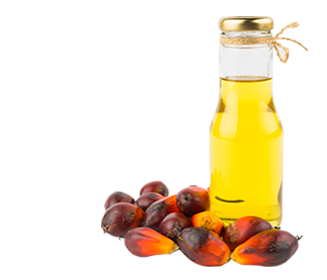

Saturated fats are solid at ambient temperature. Human beings and other warm-blooded beings store fat predominantly in the form of palmitic and stearic fatty acids.
In view of its saturated fatty acid composition, the natural properties of palm oil give it greater stability and a longer shelf life. These are desirable characteristics that avoid the need for hydrogenation of other vegetable oils, and thus prevent the production of fatty acids or “trans fats” associated to cardiovascular diseases. Palm oil is therefore a better option for health.


Reference: information on nutrition contained in the support document produced by Ms. Carolina Flores de Prado, nutritionist.